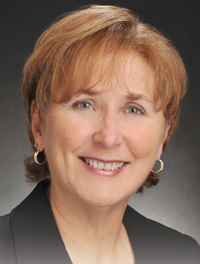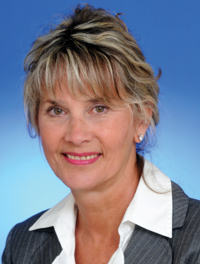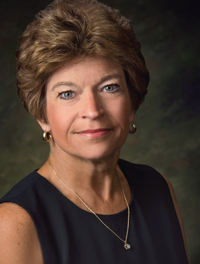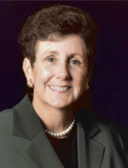
Karen B. Williams, RDH, PhD, is professor and director of the Clinical Research Center at the UMKC School of Dentistry. In addition to teaching and research, Williams has been active in clinical dental hygiene for more than 38 years and in clinical research for 24 years. Her areas of specialization include research design and statistics, educational methods, dental product efficacy, and health outcomes research.
Williams has been involved in numerous federally funded multidisciplinary educational projects including the Geriatric Oral Health Promotion and Education Project, the Great Plains Geriatric Education Center Grant, and the Partnership in Health Promotion Grant. She is the statistician/ methodologist for four National Institutes of Health (NIH)-funded projects including: effectiveness of motivational interviewing for HIV adherence; effectiveness of Sutherlandia, a South African indigenous phytotherapy treatment for HIV; and use of motivational interviewing for smoking cessation.
What aspect of your career makes you want to jump out of bed in the morning and get started?
As a child I loved treasure hunts. Conducting oral health research is like going on a treasure hunt because you’re always looking at clues along the way and those clues guide you to the next decision. At some point, those decisions lead you to better understand the constructs you are investigating. I love that. Research is really quite fun if the subject is an area you’re interested in and if you’re working with the right people.
One of the keys to research is having a wonderful, collaborative, and collegial group with whom to work. Research is not an isolated endeavor by any stretch of the imagination. With clinical research and human populations, it takes a team to get the research right when you’re dealing with complex human questions.
When you were first considering a career did you know you wanted to enter the research field?
When I graduated from high school, the opportunities for women professionally were very limited. I had a girlfriend who worked in a dental office after school and she recommended me to take her place after she graduated. After working in this practice for a year, I decided I wanted to be a dentist. In the late 1960s not many women were accepted into dental school and I was advised against even trying so I decided to focus on dental hygiene instead. I received my dental hygiene degree from Ohio State University and practiced for many years after which I thought I should continue my education. So I attended UMKC and received a master’s degree and was hired on as an educator, which I loved. But I was lucky enough to be teamed up with Adele Everhart, RDH, MS, who was then one of the most preeminent dental hygienists in the United States. She took me under her wing and encouraged me to go into research. When she left, I took her job. This was the beginning of my career in research.




